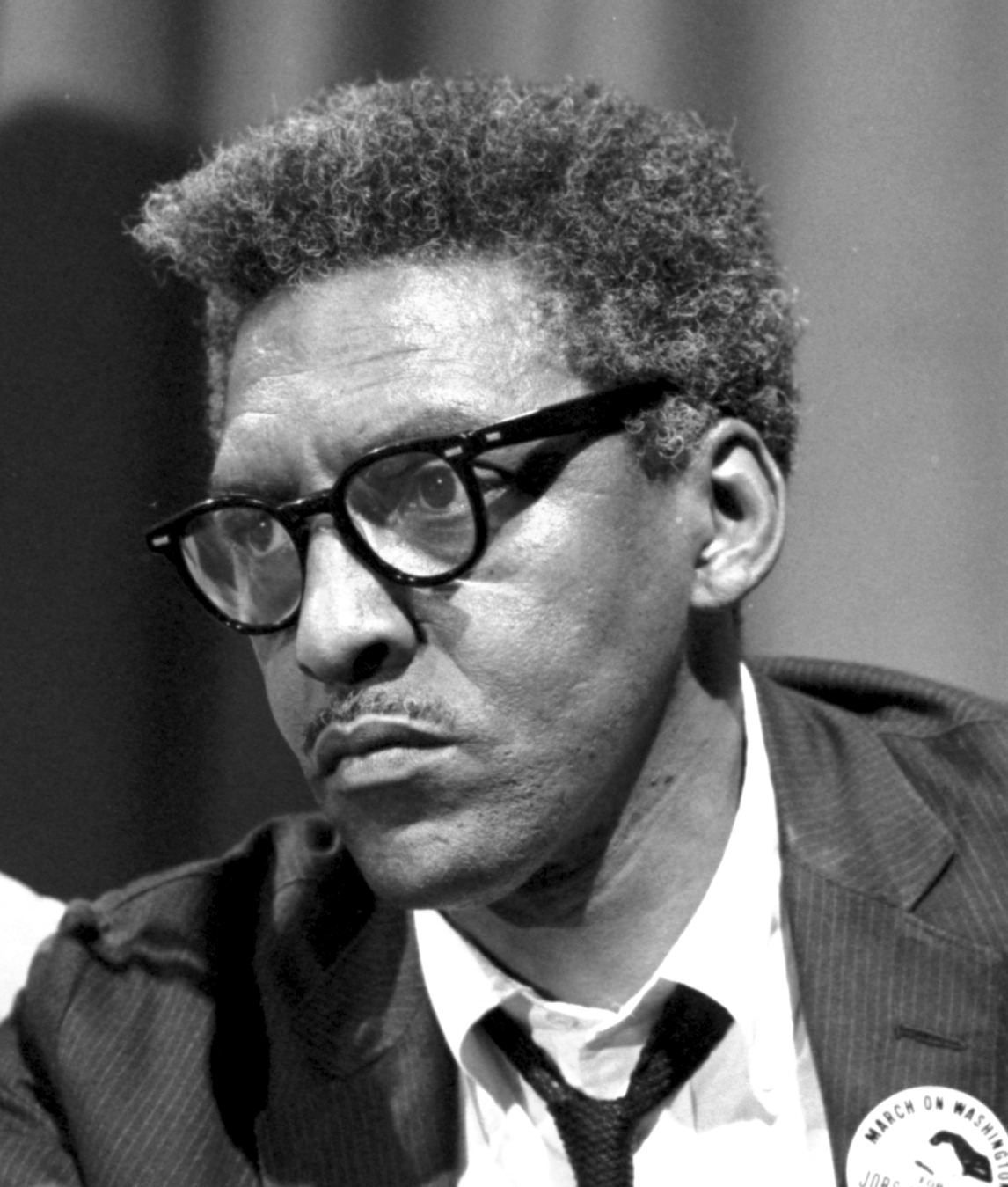It takes quite a lifetime of achievements to get a school named after you. West Chester native Bayard Rustin certainly met the school-naming criteria with a life full of activism, civil disobedience and leadership. I grew up down the road from Bayard Rustin High School in West Chester, Pennsylvania. Though I attended the school from ages 14 to 18, it took starting this series to recognize the sheer significance of the man who once served as adviser to Dr. Martin Luther King Jr. And while he is often associated with one of the most well-known civil rights activists of the twentieth century, Rustin has enough accomplishments of his own to mark him as an equally admirable figure.
Rustin was born on March 17, 1912. Tragically, he had no relationship with his father, and the identity of his real mother was hidden until early adolescence. Growing up, Rustin believed his parents to be Julia and Janifer Rustin. What he was unaware of, however, was that these two were actually his grandparents, and that Florence, the woman whom he believed to be his sister, was actually his mother. Despite this revelation, he still looked to his grandparents for parental guidance, adopting their Quaker values that would later be implemented into his activism.
According to local legend, his first act of civil disobedience took place in a restaurant frequented by the high school football team. When he went with teammates to a local restaurant, he was met with a harsh display of blatant racism; the restaurant owners refused to serve him. In retaliation of his mistreatment, he staged an impromptu sit-in, displaying that even at a young age, he possessed an incredible amount of resilience and fortitude. In addition to his passion for social justice, Rustin exercised other interests such as poetry, singing and sports. Teenage years are often associated with turmoil and angst, and Rustin faced additional struggles due to the negative associations with his sexual orientation. When Rustin revealed to his grandmother that he was gay, she replied, “I suppose that’s what you need to do,” adopting a rather progressive outlook on the declaration considering the time period.
Rustin attended several schools in his college career, becoming a student at both Wilberforce University in Ohio and Cheyney State Teachers College (now known as Cheyney University of Pennsylvania). His studies continued at the City College of New York, where he moved in 1937. While there, he joined the Young Communist League. But when the Young Communist League got in the way of his goals for racial desegregation in the U.S. Army, he resigned. Four years later, he joined another organization named Fellowship of Reconciliation. The organization, founded in 1915 by 68 pacifists, allowed him to form ties with the men who would later establish the Congress for Racial Equality in 1942. Rustin joined his FOR comrades in campaigning for racial equality across the United States in the years that followed, distinguishing himself as a key player in the battle for social justice.
For Rustin, success was met with equal backlash. Two years later, at the beginning of America’s involvement with WWII, he was arrested for refusing to register for the draft. And when he took part in protests against the segregated public transit system in North Carolina in 1947, he was arrested a second time and forced to work on a chain gang. In 1953, he was arrested a third time under charges of publicly engaging in homosexual activity. With the number of his arrests increasing, FOR forced him to resign. His resignation was accompanied by the following statement: “I know now that for me sex must be sublimated if I am to live with myself and in this world longer.” This heartbreaking conclusion serves as a testimony to the frequent mistreatment of LGBTQ individuals that continues today. But despite attempts to extinguish his spirit, Rustin continued to live as an openly gay man and vigorously campaigned for gay rights in his later years.
While I have yet to cover Rustin’s associations with the infamous Dr. Martin Luther King Jr. and his contributions to the March on Washington for Jobs and Freedom, a look into Rustin’s early life reveals a great deal about his character and the values that guided him from infancy. From the time that he was young, he expressed himself both boldly and with courage, despite the odds society stacked against him as a gay, black man. In the next issue, we will take a greater look at some of his more infamous pursuits. But for now, even without his most famous achievements under his belt, the West Chester native remains an astounding character.
Celine Butler is a second-year student majoring in psychology with a minor in French. ✉ CB869017@wcupa.edu.


Wonderful & inspiring piece.
Very much appreciate the recognition & indeed celebration of Bayard Rustin, who was so integral to the Movement & in fact the man who brought the very notion of non-violence to Dr. King but for far too long forgotten by history & indeed shunned entirely because of whom he loved & how he identified.
Right now there is an effort in Rockville, MD, to get an elementary school named after him that is encountering much resistance. You can get the skinny here & support those folks if so inclined:
http://www.bethesdamagazine.com/Bethesda-Beat/2018/School-Notes-Emotions-Flow-During-Testimony-about-Naming-New-School-for-Bayard-Rustin/
& feel free to visit my newly-formed but powerful community activist center & educational enclave,
the Bayard Rustin Center for Social Justice @
https://centerforsocialjutice.blogspot.com
Muchas gracias & be well & be good.